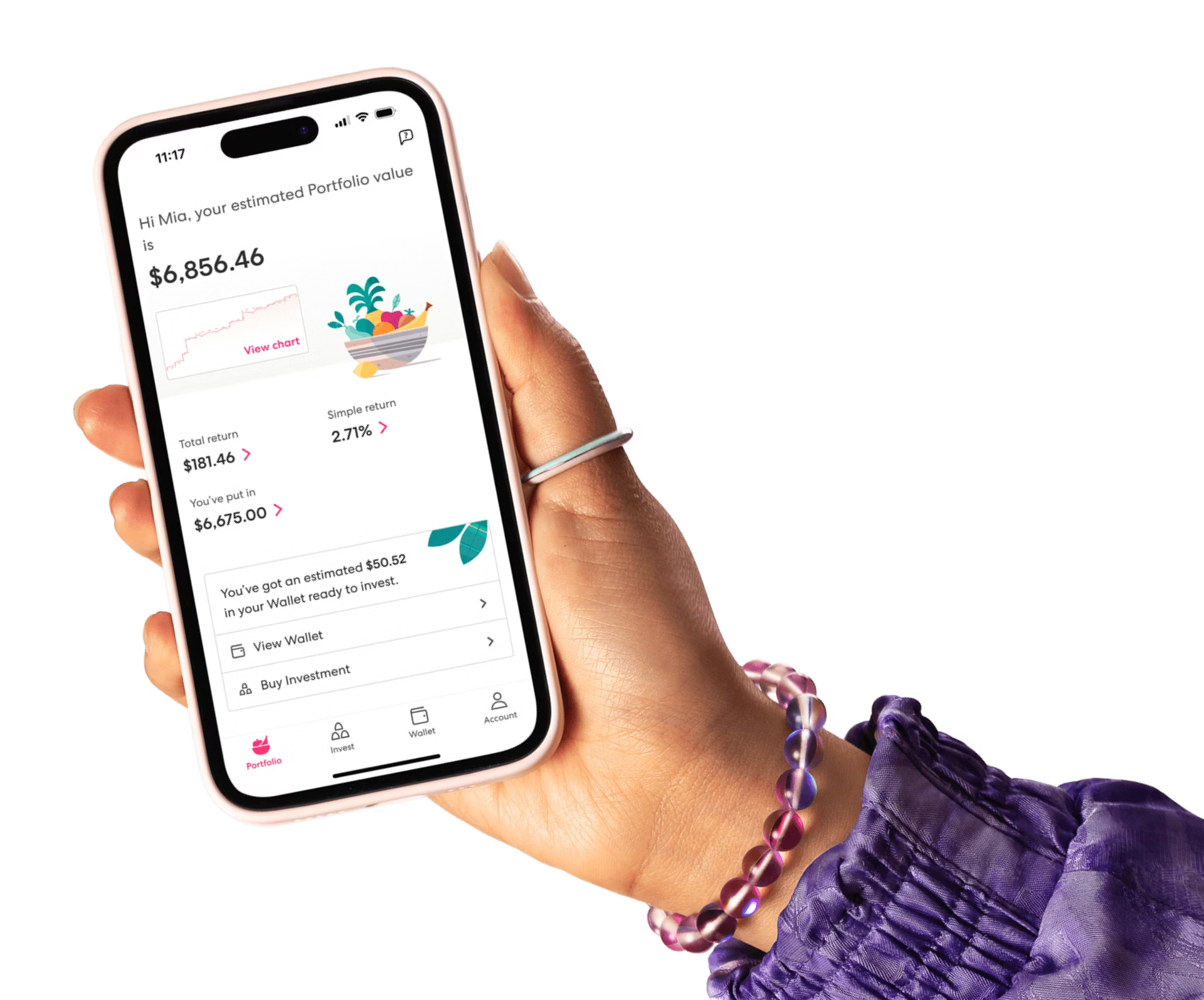Kiwis’ attitudes to saving and investing in 2019
For the second year running, we asked Colmar Brunton to interview 1,000 New Zealanders about their attitudes towards spending, saving and investing.

Download the full report [PDF, 2.4 MB] or check out the key findings below:
Despite being motivated and willing to invest, there are many who aren’t taking that step. This is in spite of low interest rates on savings accounts.
There’s still a big gender gap in motivation and knowledge to invest.
Many people over the age of 44 don’t believe that KiwiSaver will be enough to retire on.
Saving vs investing
Similar to last year, nearly three-quarters of New Zealanders have a savings account, and only 20% are investing in shares. Savings rates are low—nearly 60% of people are saving or investing less than 10% of their income, and 18% aren’t saving at all.
If given $50 today, the majority said they’d save it, and less than 10% said they’d invest it. This is despite the fact that 56% of people say they’re motivated to invest. There’s something that’s stopping motivated people from investing!
Are savings accounts paying decent returns?
While more Kiwis are saving compared to investing, they aren't getting the returns they expect from their savings account. 70% of people believe the return from a savings account is between 1% and 3%. Evidence suggests otherwise—interest.co.nz (as at 10 September 2019) shows the majority of on-call savings accounts earn less than 1% interest per annum.
Despite the low returns from savings, New Zealanders don’t appear to be looking for alternatives.
Thinking, talking and learning about money
Overall, there has been little change in New Zealanders’ attitudes towards money. Most people are planning for the future and feel in control of their spending. For life priorities, managing money well (36%) came in third place, behind staying healthy (57%) and time with friends and family (45%).
People are talking more about money—to friends and family, mainly. With more and more information online, Kiwis are educating themselves more, rather than looking for advice from other sources. The younger you are, the more likely you are to look for information yourself.
The gender gap
Fewer women believe the share market is accessible to them (31%), compared to men (50%). Only 28% of women feel knowledgeable about investing in shares, whereas 44% of men feel knowledgeable. More women (29%) think that investing is only for people with lots of money. Only 21% of men think the same.
There’s an obvious investment gap between women and men. Women are clearly motivated to invest (half of them said so) but a lack of knowledge holds them back.
Looking ahead
Over the last 12 months, the global share market has experienced a period of increased volatility. There’s been a lot of media speculation about when the next recession will hit, but so far, sharp downturns have been closely followed by fast upswings. Here’s what we think the trends will be over the next year and more.
Low interest rates, low return
In New Zealand, the Official Cash Rate (OCR) is at an all-time low. The 65% of New Zealanders with a savings account will see their returns, from savings and term deposits, impacted.
Housing pressure
Demand for housing is unlikely to drop. If house prices remain steady or continue to increase as many commentators expect, the ability to get that first home will remain difficult for the first-home-buyer. They’ll be looking for new ways to grow their wealth. There may be a noticeable move away from savings into shares—particularly funds and bonds.
Women and investing
As it becomes easier to access investing, women will feel more confident and engaged, and see investing in shares as a valid alternative or addition to other investments, like property and term deposits.
Retirement income
KiwiSaver is a long term investment for retirement. Most people don’t recognise this as an investment. In the short term, we don’t expect a lot of change—but in the longer term, we predict a shift to more self-managed KiwiSaver portfolios as investment knowledge and engagement increases.
Doing it for yourself
Our data shows an increasing reliance on do-it-yourself investing. There will be more information being made available to investors, through education, or through personalised robo-advice—something that we believe will begin to work hand-in-hand with human advisers.
Education
We’d like to see more education about personal finance and investing in primary and secondary schools. This will lead to an increase in investor confidence and knowledge, with a corresponding upturn in financial wellbeing.
Vote with your dollar
As more retail investors enter the market, through platforms like Sharesies, shareholders will demand more than just returns—good governance, sustainable business practices, and diversity. Increasingly, shareholders will expect profit with purpose.
If you’re keen to learn more about the survey, you can read the full report here [PDF, 2.4 MB]. You can also download the 2018 report here [PDF, 586.14 KB]. We’d love to hear what you think of the results—get in touch via Facebook, Twitter, Instagram, or email!
Ok, now for the legal bit
Investing involves risk. You aren’t guaranteed to make money, and you might lose the money you start with. We don’t provide personalised advice or recommendations. Any information we provide is general only and current at the time written. You should consider seeking independent legal, financial, taxation or other advice when considering whether an investment is appropriate for your objectives, financial situation or needs.
Join over 800,000 investors



